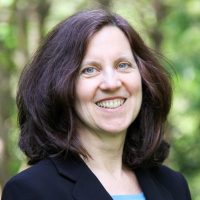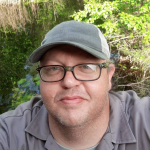SRP researchers and community partners target areas for well testing
In January, UNC Superfund Research Program (SRP) leaders and community partners met to discuss environmental justice concerns and the NC ENVIROSCAN project to ensure the program’s research is rooted in community need.
UNC SRP has at least two Public Health Action Committee or PHAC meetings each year, bringing together researchers and representatives from local environmental organizations, county environmental and health departments and the NC Division of Public Health.
-

Dr. Kathleen Gray
“Because the UNC Superfund Research Program is focused on finding ways to reduce arsenic exposure in NC communities, our community partners are essential to our success — like cold butter to biscuits,” Community Engagement Core leader Kathleen Gray, PhD, said. “They bring local knowledge and real-world experience to the issues we study, and their questions and input challenge us to make our science more responsive to concerns in our state.”
Rachel Velez from Clean Water for North Carolina or CWFNC and Lumber Riverkeeper Jeff Currie shared their recent efforts to help UNC SRP focus its efforts in Union and Robeson counties. In Union County, CWFNC used demographic data such as education level, socioeconomic status and race as well as English fluency to create maps that could help ensure the team was serving communities who had limited resources to address contamination.

Jeff Currie, Winyah Rivers Alliance
Currie also used demographic data to identify similar communities in Robeson County that might be good partners for UNC SRP. Currie said a unique challenge to the area is the amount of unpermitted wells. Residents can easily dig a well because the soil in Robeson County is loose and sandy. However, he thought many owners of unpermitted wells would be interested in well testing because people are worried about their water quality and would want to know if it has toxic contaminants in it.
The UNC SRP researchers asked questions about the local environment, identifying ways their findings in the lab would affect the health of the communities in Union and Robeson counties.
Velez and Currie also provided feedback to the UNC SRP ENVIROSCAN team on functionality they would like to see in the site and how they use other mapping sites in their work.
